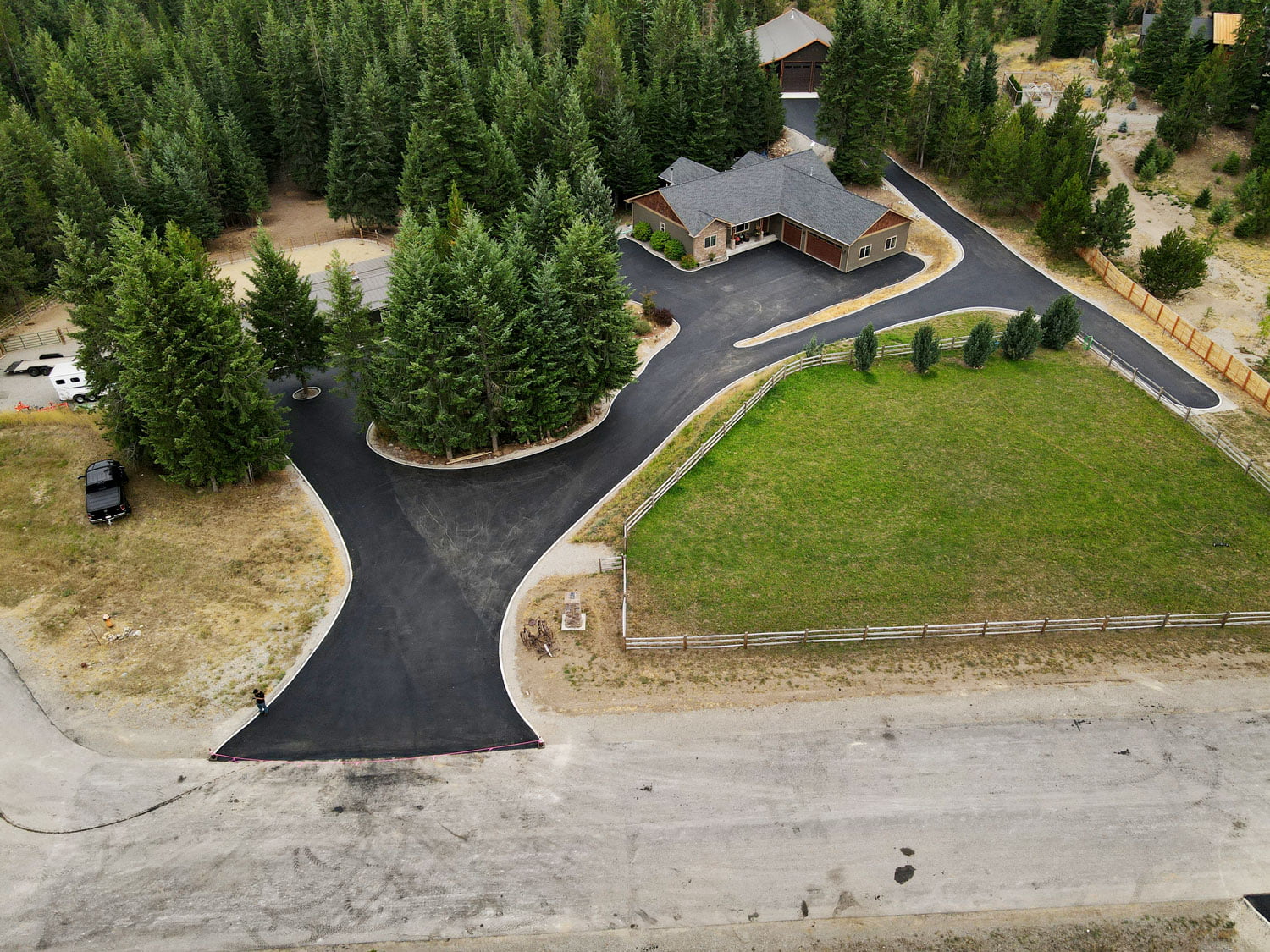Winter can be a beautiful and enchanting season, but it also brings harsh weather conditions that can take a toll on our infrastructure. One of the most vulnerable parts of our roadways and driveways during the winter months is asphalt. In this blog post, we’ll explore the impact of winter on asphalt and provide you with valuable tips on how to protect it, ensuring the longevity and safety of your pavement.
The Impact of Winter on Asphalt
Freezing and Thawing Cycles
Winter brings fluctuating temperatures, causing the ground to freeze and thaw repeatedly. This freeze-thaw cycle can be detrimental to asphalt. When water seeps into cracks in the pavement and freezes, it expands, putting pressure on the surrounding asphalt. As it thaws, the asphalt contracts, leading to cracks and potholes.
Snow and Ice
Snow and ice accumulation on asphalt surfaces can lead to various problems. Snowplows and de-icing chemicals can cause mechanical damage and chemical corrosion. Additionally, the freeze-thaw process can turn accumulated snow and ice into water, further exacerbating the damage to the pavement.
Salt and De-Icing Chemicals
To combat icy conditions, salt and various de-icing chemicals are often applied to roadways and driveways. While these substances are effective at melting ice, they can be harmful to asphalt. They contribute to the corrosion of the pavement’s surface and can weaken its structural integrity.
Reduced Traction
Winter weather can reduce the traction of asphalt surfaces, making them more slippery and hazardous for drivers and pedestrians alike. This reduced traction can lead to accidents and injuries.
Protecting Your Asphalt
Regular Maintenance
Proactive maintenance is key to protecting your asphalt during the winter. Conduct regular inspections to identify and address cracks, potholes, and other surface imperfections. Fill in cracks with appropriate sealants and patch potholes promptly.
Sealcoating
Sealcoating is a preventive measure that involves applying a protective layer over the asphalt surface. This sealant acts as a barrier against moisture, UV rays, and chemicals. It helps to extend the life of the pavement and reduce the risk of winter damage.
Snow Removal
Prompt and efficient snow removal is essential to prevent the accumulation of snow and ice on your asphalt surfaces. Use snowplows, shovels, and snow blowers to clear the area, and avoid using metal blades or sharp tools that can damage the pavement.
Limit Salt and Chemical Use
While de-icing chemicals are necessary for safety, it’s crucial to use them sparingly and follow manufacturer recommendations. Consider alternative methods like sand or non-corrosive de-icers when possible.
Professional Assistance
For extensive repairs and sealcoating, hire Asphalt Pros USA. We have the expertise and equipment to ensure the job is done correctly, providing long-lasting protection for your pavement.
Conclusion
Winter’s harsh conditions can pose significant challenges for asphalt surfaces. However, by understanding the impact of winter and taking proactive steps to protect your pavement, you can ensure its longevity and safety. Regular maintenance, sealcoating, responsible snow removal, limited chemical usage, and professional assistance all play vital roles in safeguarding your asphalt during the winter months. By following these guidelines, you can enjoy smoother, safer roads and driveways year-round.


